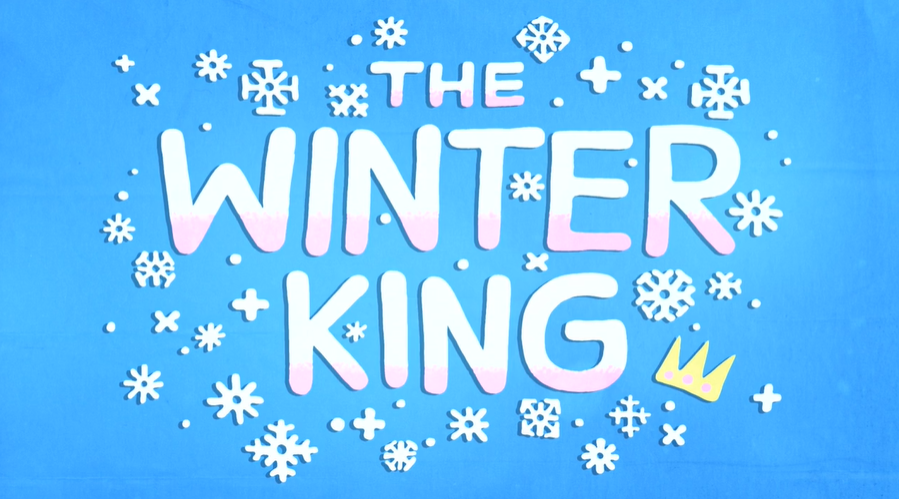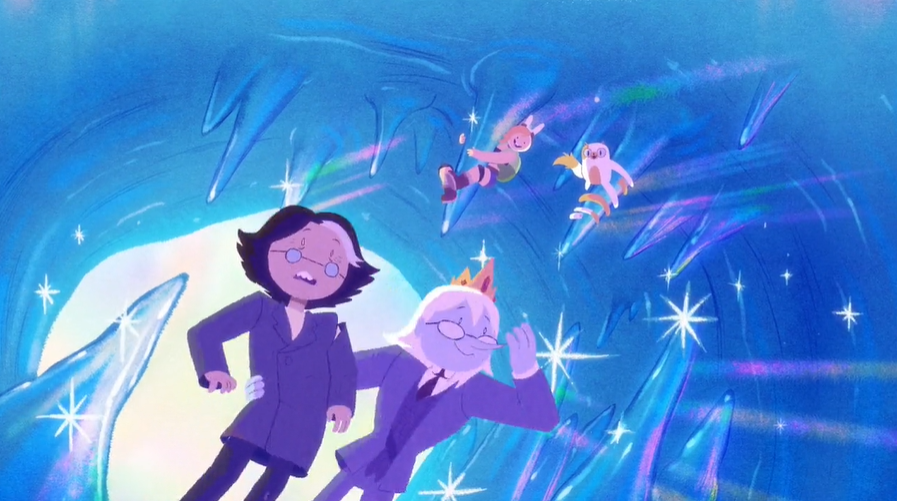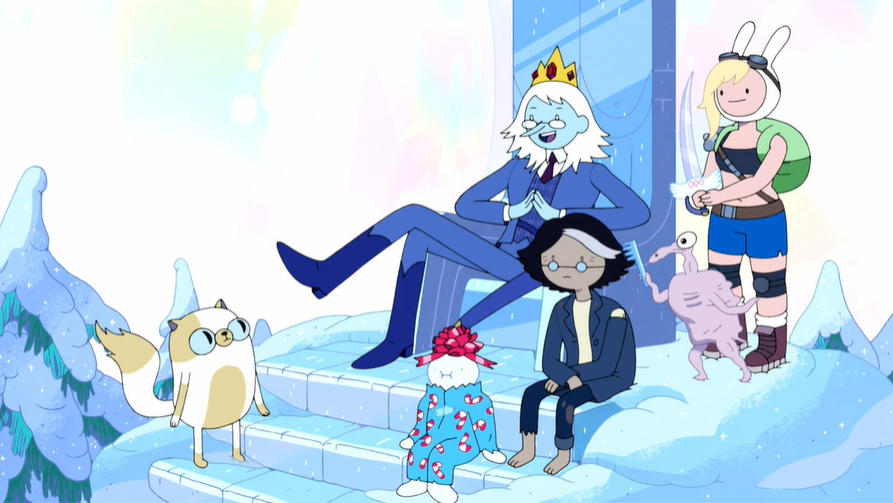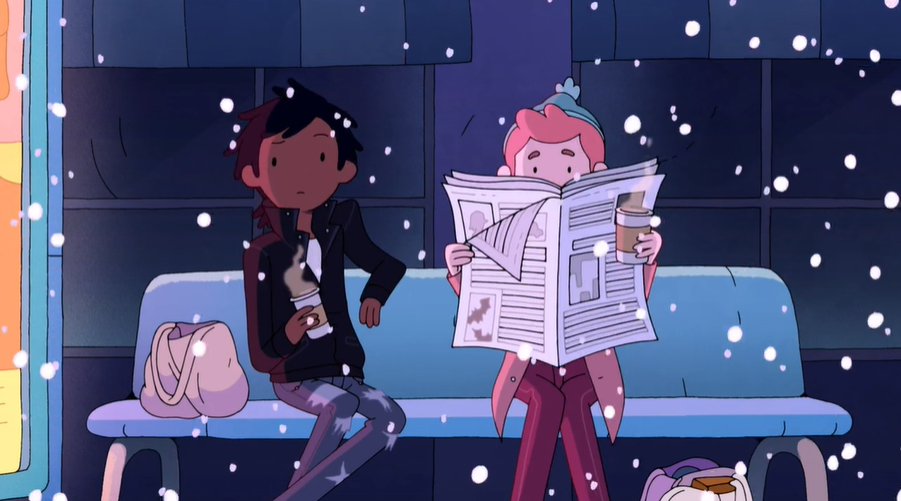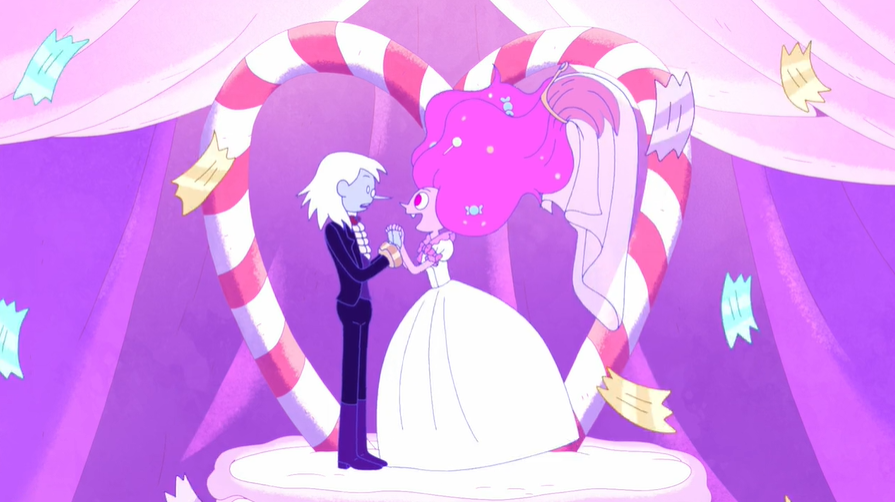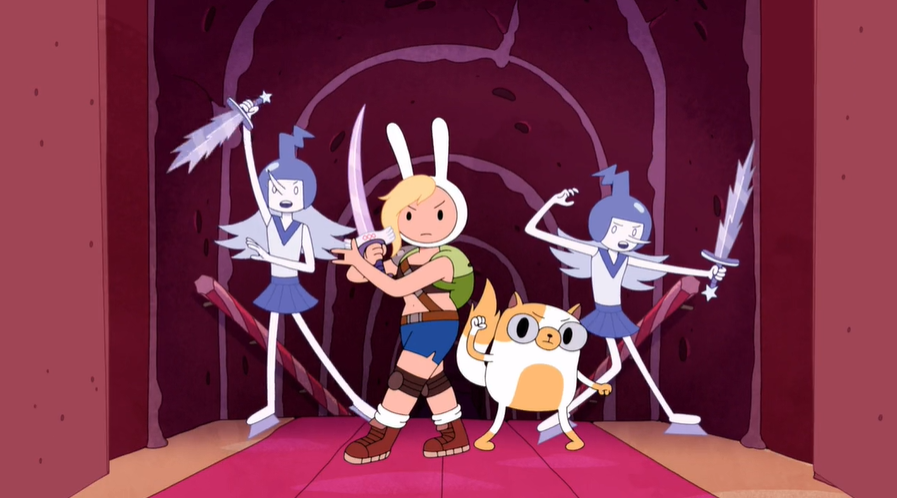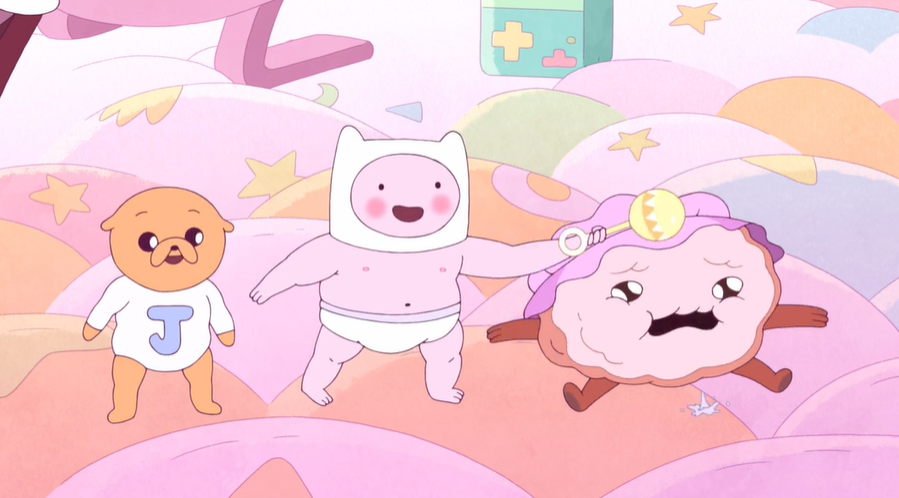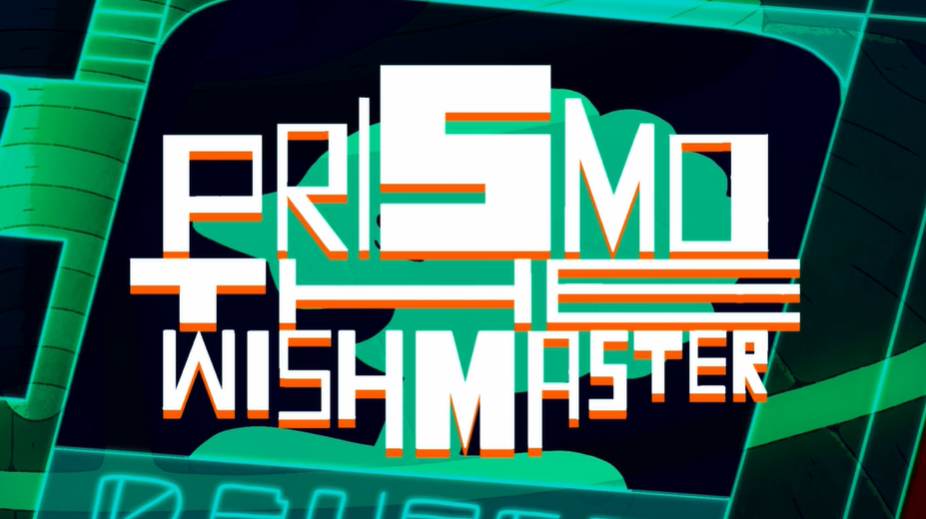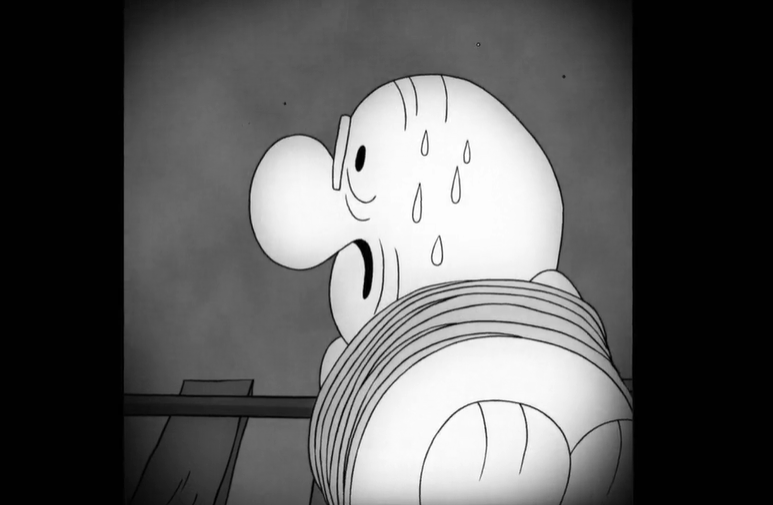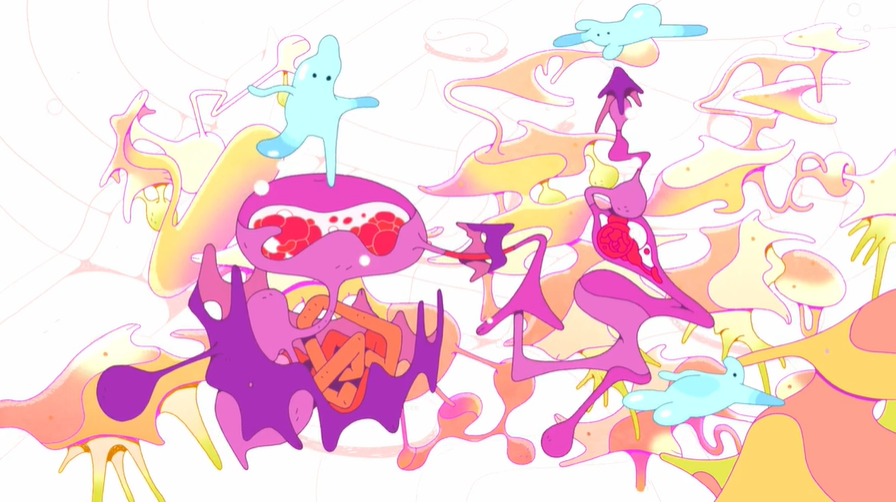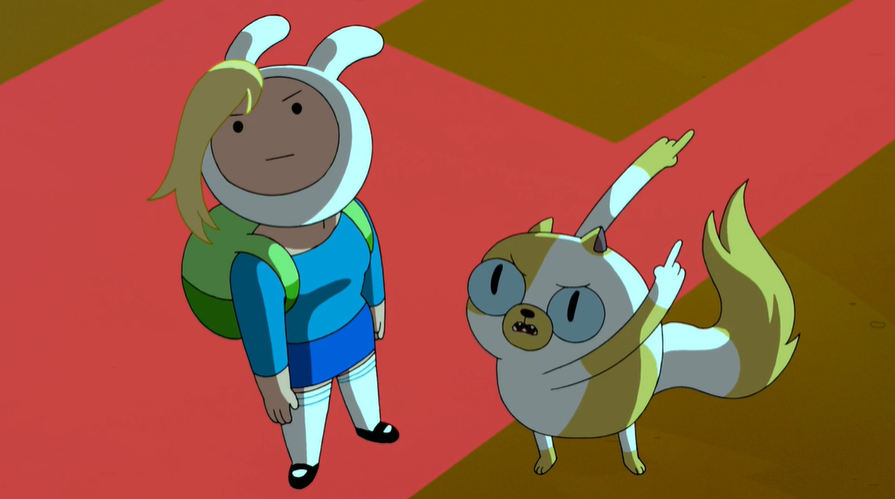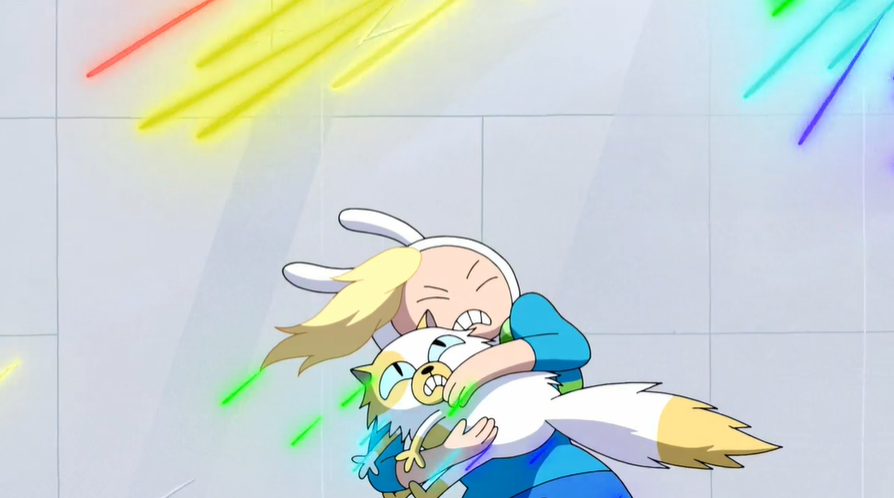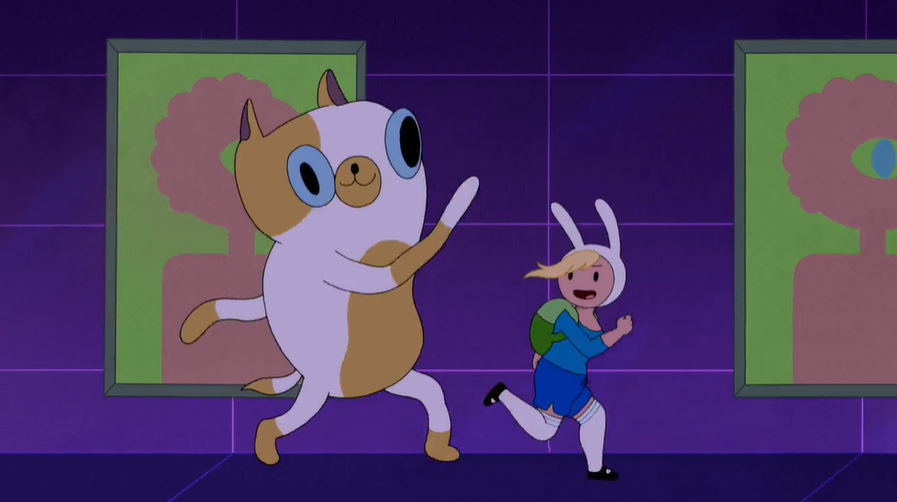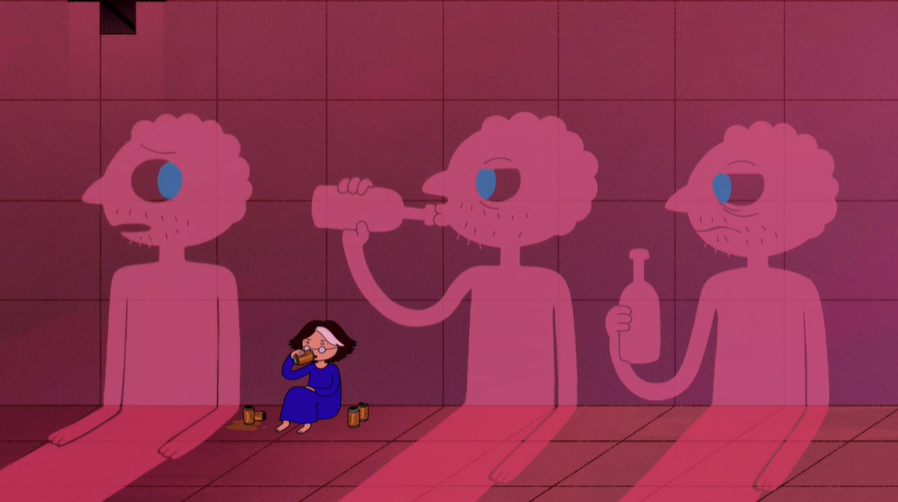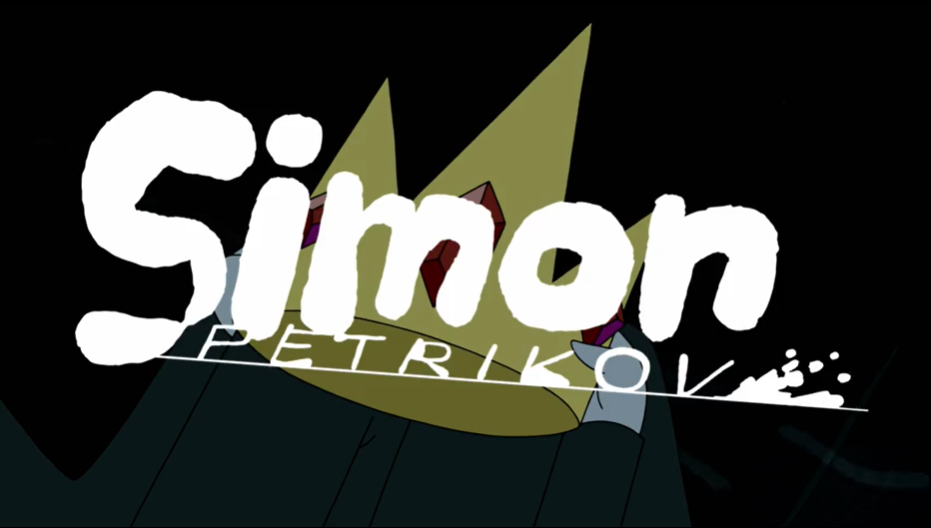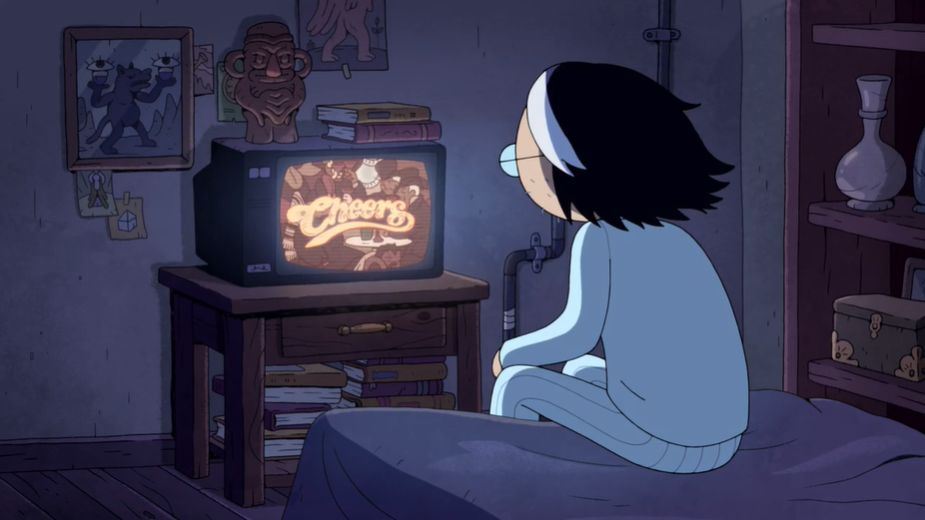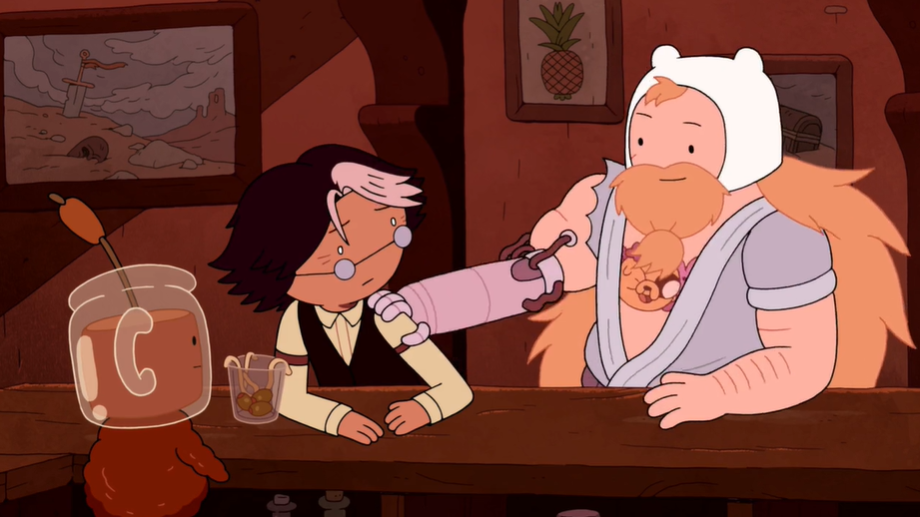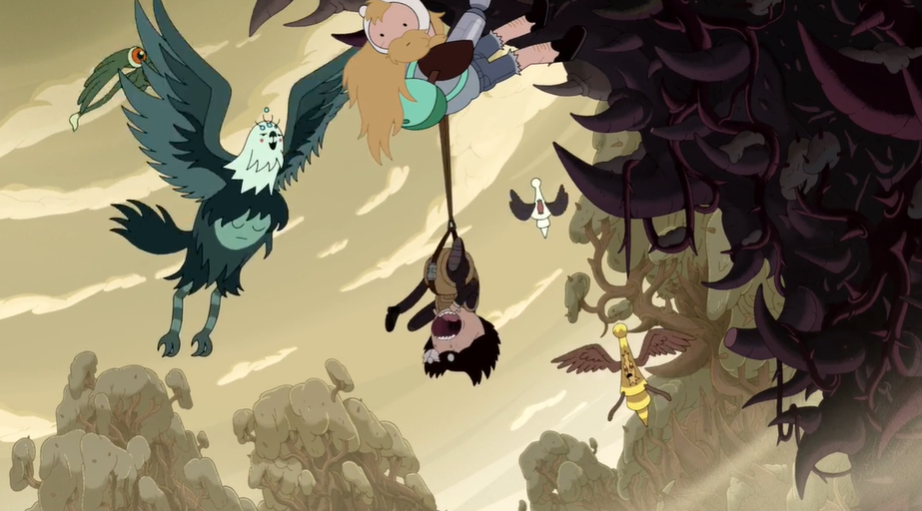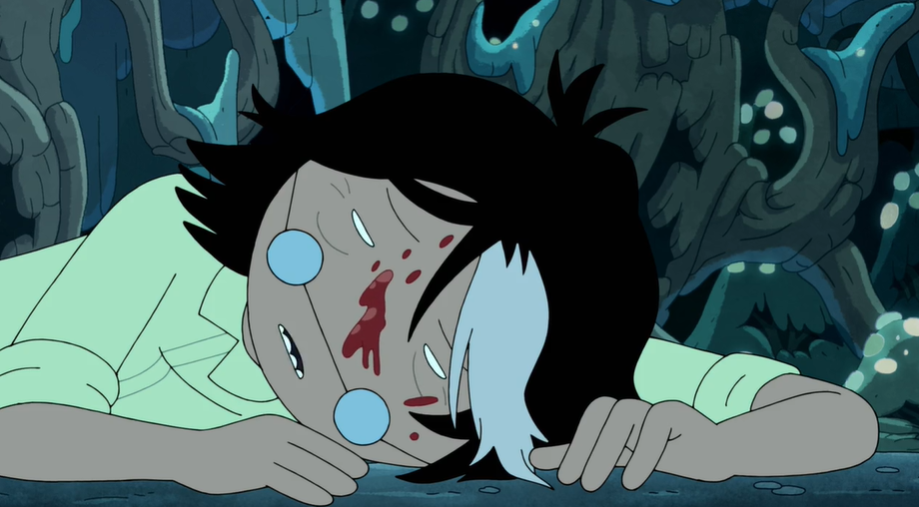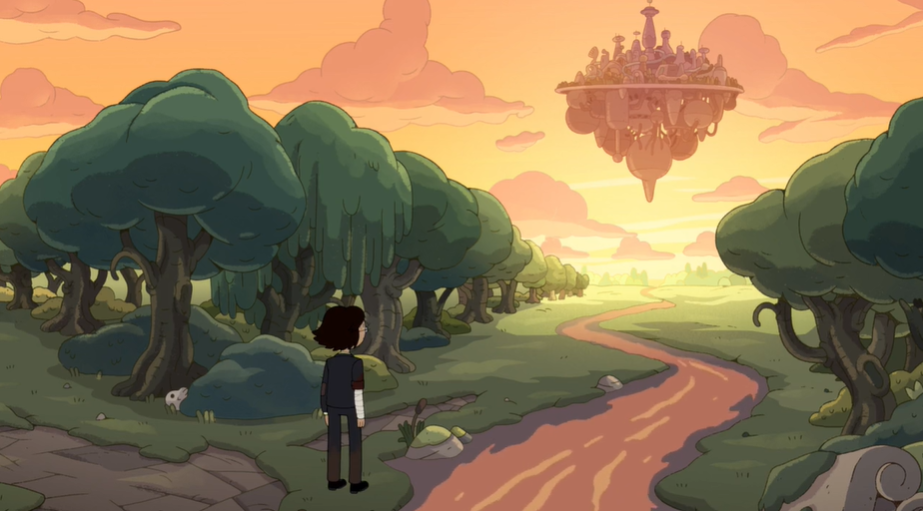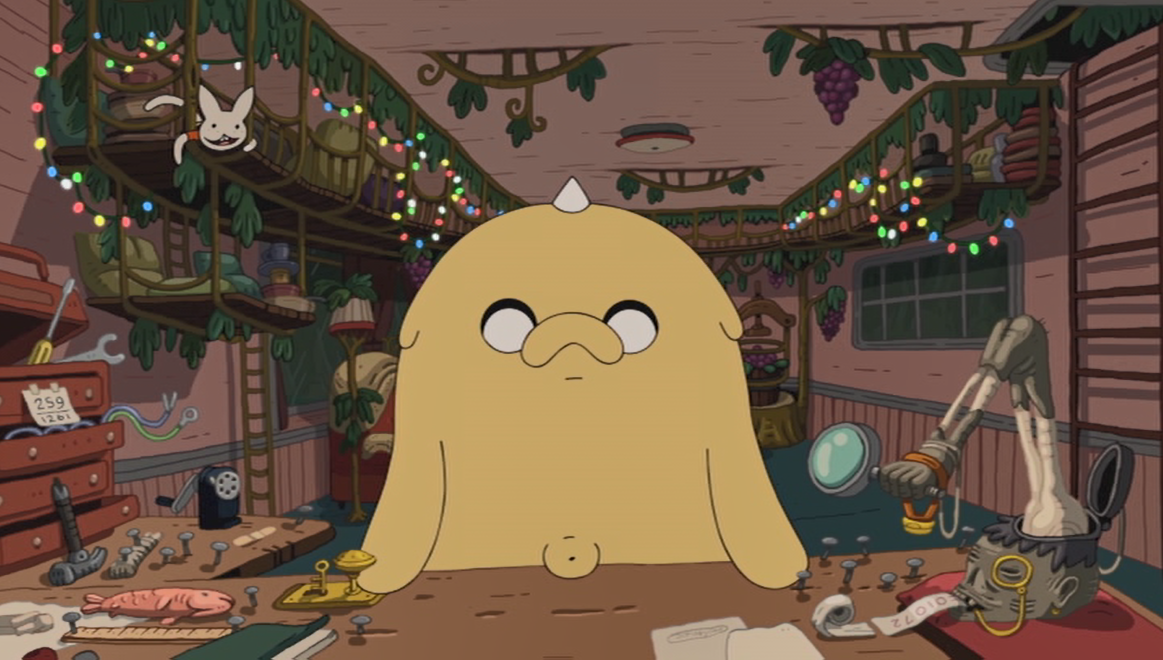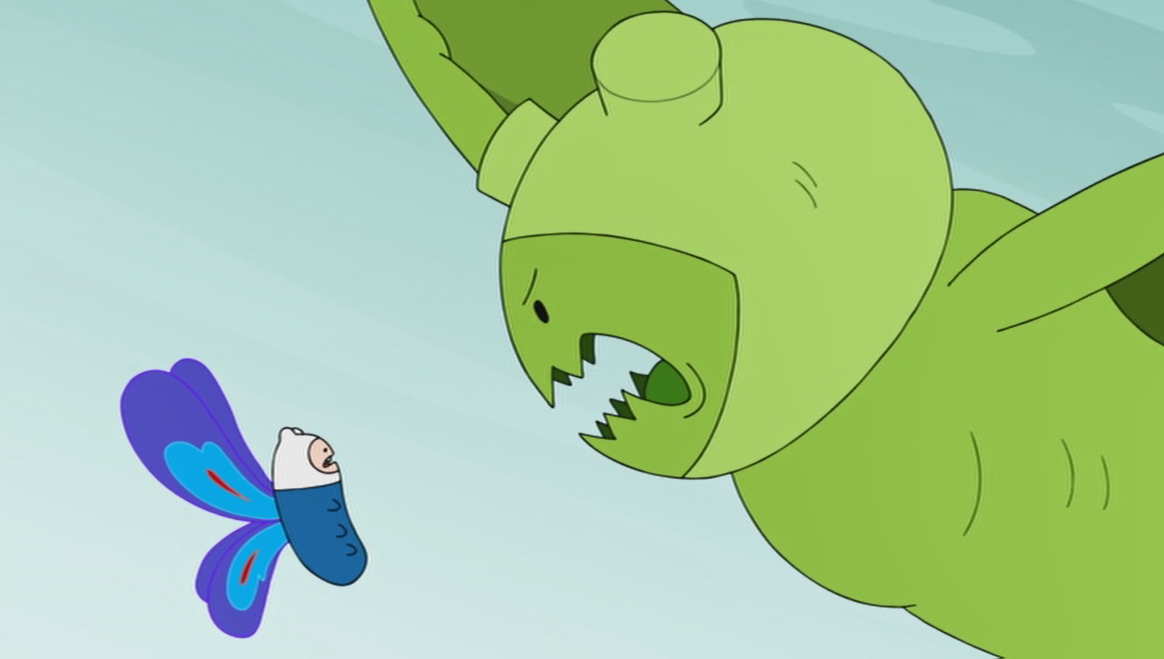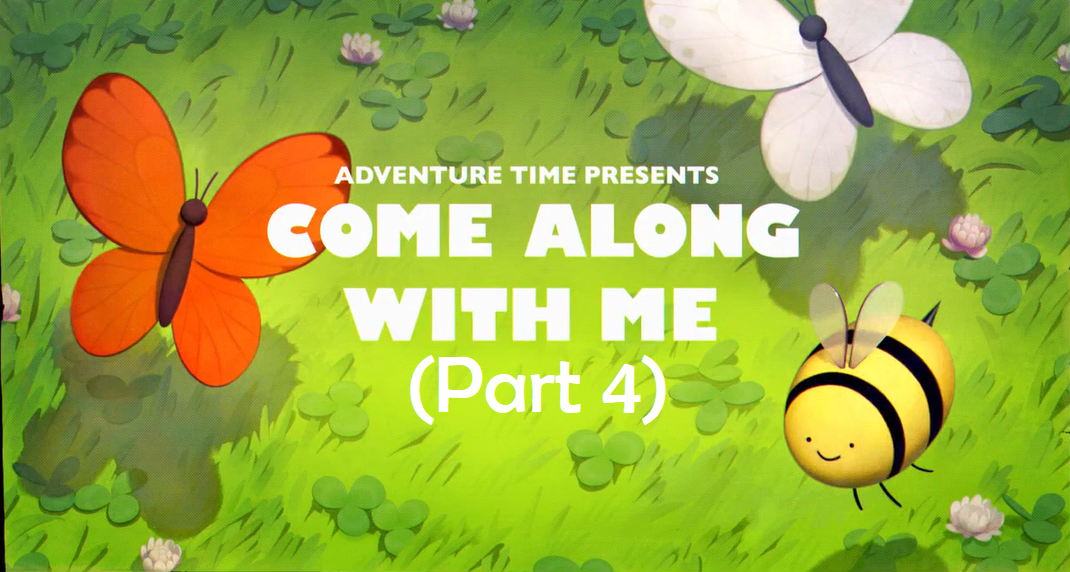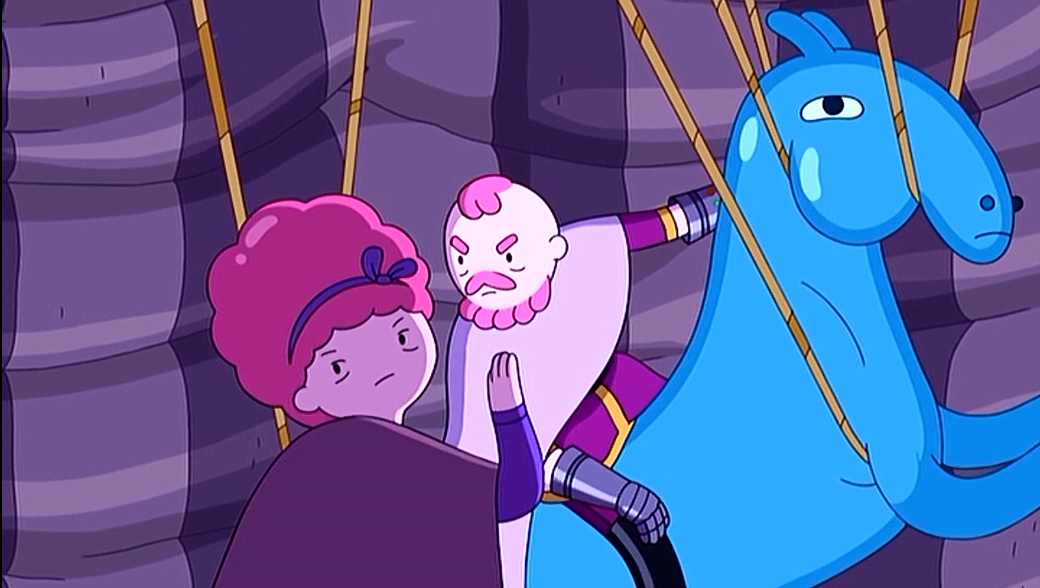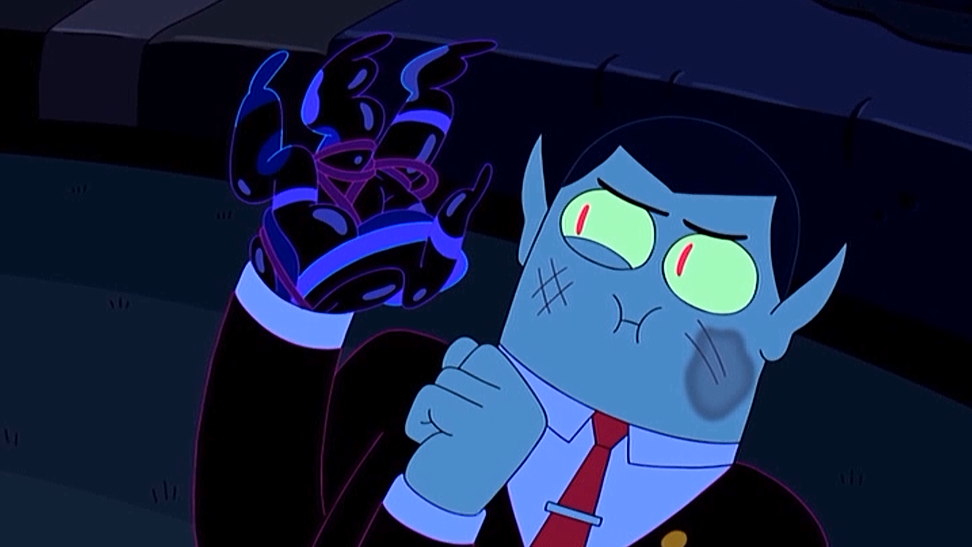
Original Airdate: September 21, 2023
Written & Storyboarded by: Iggy Craig, Graham Falk, Jacob Winkler & Sonja Von Marensdorff
And we’re back!! Was a bit burnt out by Fionna and Cake but the time I got to the sixth episode review, so I figured instead of forcing myself to muster up the inspiration to get through those last few episodes, I’d take time away to do other stuff and eventually return back. Since then, we’ve also gotten some exciting news – the show has been renewed for a second season! Of course, that means I continue to be trapped in a reality where I’m stuck reviewing Adventure Time episodes for the rest of my life, but hey, at least we’ll get to see more of sexy adult Finn probably!! In all seriousness, I do pretty much plan on continuing this gig as long as I have to drive to do it. I definitely don’t have the same passion as I used to – I started this project about 8 years ago now and I could churn out reviews like crazy, now it takes me weeks to complete just one! But I love AT and it will always have a special place in my heart, so it’s always a treat to get to return to it time and time again. And hey, this blog has actually never had more views! I was shocked to see that last year performed better than it ever did during the show’s original run, which is really, really cool to see. Thank you to all the devoted readers over the years, you are appreciated endlessly!

My gushing aside, let’s get to the real MEAT here. The Star takes us through yet another alternate reality of Ooo, and serves as the unofficial spiritual successor to Stakes. I mean unofficial pretty loosely, because they even brought back the tarot naming conventions with “The Star.” I’m not really a tarot expert or anything, but just scanning over explanations online, I can only assume the reversed meaning most directly correlates with Marcy’s portrayal. On The Tarot Guide, specifically with love in mind, the reverse description reads:
“The Star reversed indicates loneliness and lack of faith in the universe’s plan for you. You may be feeling like you will never meet the right person for you. You may feel that you are becoming cynical about love.”
A large chunk of this is an exploration of Marceline and Bubblegum’s relationship through multiple different iterations, and displaying that, regardless of intent, the passion they share for each other is relatively unchanging. Though Fionna and Cake’s world finds their incarnations in the least toxic of situations, the vampire world features a different type of dependency. Bubblegum has devoted her life to bringing down Marceline and the Vampire King, while Marceline views PB more as a playmate than an actual person. Despite claiming to have zero feelings of affection towards her adversary, PB sure has devoted much of her life around the downfall of said opponent. Even more so than the Vampire King, apparently! Marceline claims that Bubblegum shouldn’t be underestimated, but really, I think she probably could take her out more easily than she lets on. The reason their rivalry spans across so many meetings between the two (enough for Marceline to know that PB’s first name is “Bonnibel”) is because Marcy is restraining herself just a bit in the spirit of fun.

While the Stakes miniseries tackles Marceline’s struggle with feeling as if she can never truly grow as a person, The Star plays with a version of Marceline that never developed out of her childhood worldview. The way she interacts with both PB and the Vampire King prove how infantile her version of connections are, in a way that I don’t think that pain described in the tarot reading is even felt in a conscious way by herself. She only knows how “human” connectedness works from the perspective of a seven-year-old mind, which was likely instantly warped when meeting with the VK. The Vampire King returns once more in this one, with Billy Brown reprising his role. With the amount of tertiary characters that got recasted this season, it’s pretty cool to see they got Brown back, even for such a small role. I do wish he got a biiit more to do, only because Stakes provided us with hints of a really cool character, somewhat squashed it, and then never really did anything with him again. He gets a few neat moments here (namely the scene where VK tries to allure a vulnerable Cake) but is mostly around to drive forward how much Marceline’s motivations have shifted without Simon around.
The episode admittedly has a bit too much fun with Bubblegum and Marceline’s dynamic that it slightly overshadows Simon and Marcy’s connection to each other, but I kind of prefer it that way. There’s a few moments that reinforce how much Simon’s presence had an impact on Marceline’s life, but I didn’t need the whole episode to be devoted around that. We already know that from everything we’ve seen in the series up to this point and it simply serves as an important reminder for Simon when he’s at his lowest, especially considering that he initially figured that Marceline would be fine without him in the flashback shown at the beginning of the season. Although, it was even a bit on-the-nose to have Simon call VK a bad dad, but I like how much of a dork Simon is so I’ll let it pass.

Gary and Marshall continue to be very cute and the entire blood drive event parallel was quite fun. Once again, we’re treated to a lot of different genderbent cameos, this time with a special Jesse Moynihan theme! You’ve got lookalikes of Xergiok, Bandit Princess, Ron James, Magic Man, Maja, Crabbit, Samantha, Tiny Manticore, and even some deep cuts like Gridface Princess, Bella Nocce, and the demon guard. Moynihan’s presence on the show is surely missed, so this is a great little tribute to him (P.S. check out his project Jesus 2 if you haven’t yet!) Along with some other character additions like Eberhardt, Ricardio, and Caroll (did you expect Steve Wolfhard to not bring her back as a genderbent character?) And of course, you have the big reveal of Hunson Abadeer’s counterpart, aptly just as dancey and cruel as her male stand-in. She’s also kind of a baddie! I had to look up who actually voiced her and was surprised to see it’s Erica Luttrell, who portrayed Elise back in Obsidian. A great casting choice, especially since she’s essentially just portraying different versions of Marcy’s mom. Also a nice touch – Tom Kenny voices the male version of Maja, who was portrayed in the original series by his wife, Jilly Talley. Granted, Kenny only has one line of “well!” and I’m sure they just had him do it because he was already in the booth, but I’d imagine at least ONE staff member made the connection.
We’re also treated to some alternate versions of other recurring characters in the vampire world – namely Huntress and Martin. It’s pretty cool how Huntress’s human form is marked only by the lack of there being any source of magic for her with the sun being covered up – though I’d imagine the sun isn’t the only thing that makes her a magic user. It also curious that her name is just “Huntress”; at this point I’m wondering if it’s just a Doctor Princess-esque surname for all of her incarnations. Martin returns once again in a much nobler light. I was kind of wondering what the real purpose was of showing that Martin and baby Finn (who stowed away from baby world) were able to bond together in Martin’s current state. Similar to what I said about Simon and Marcy, we already know that Martin’s capable of showing love under the right circumstances. However, I think this kind of works hand-in-hand with what is being shown between Bubblegum and Marceline: that Martin and Finn have a connection pretty much across all (or most) universes where they coincide. Even in this case, across several universes! It’s interesting to think that such a tumultuous relationship that we’ve come to know is somewhat bound by a strong connections across the multiverse.

We also have the titular alternate reality versions of Bubblegum and Marceline, whose dynamic I’ve spoken heavily about, though not their individual roles. Honestly, while I love how their relationship plays out and parallels the interactions between Marshall and Gary, I don’t love these depictions of the characters that much. I think Bubblegum’s characterization is a little too standard in playing into post-apocalyptic survivalist tropes – it just doesn’t really feel engaging to me when it’s an archetype that I’ve seen across so many different pieces of media, and even then, it’s not an archetype I love in general. I don’t really have a problem with Marceline’s depiction and how it plays into a more childlike version of herself, but I dunno, I don’t really think I like Olivia Olson’s delivery here? It’s a bit too… theatrical? I can’t really articulate what does and doesn’t work for me about the performance, and maybe it’s more so the dialogue that was given to her, but something about it just didn’t jibe with me. Which I know I’m probably gonna get shit for because I’m pretty sure this is the one episode that everyone really got into, but it’s nothing like, awful to me. Like I said, I still really like their dynamic and I do think there’s interesting things to explore with their individual portrayals, namely that Bubblegum still needs to be validated by her own accomplishments and is still vulnerable to deep insecurities beyond her gruff exterior. I just wasn’t swayed by the anime vampire dresses. Sue me!
Oh yeah, and Fionna and Cake are here too! Remember them? I feel bad for anyone that comes to this blog wanting me to whip up paragraphs upon paragraphs of Fionna and Cake’s character journeys, but like, I just don’t have all that much to say! As I’ve mentioned, I don’t think anything with them is especially bad (except for some moments we’ll be exploring in the next episode), but their arcs just kind of speak for themselves and there’s not a ton I feel that is needed to be said that wouldn’t be just reiterating what the episode is showing. You have Fionna feeling guilty in her inability to be able to make a difference through her actions, even when they are out of goodwill, and Cake’s fight for wanting her own autonomy in her new self-sufficient form. It’s all fine stuff, it’s just never something I feel the need to dig deeper into/what I’m particularly drawn to with this season as a whole. Which sounds kind of harsh for a show that’s primarily about them, but I do think each episode comes with its own unique sense of individuality and explores the nature of multiple worlds in a super intriguing way that I don’t really mind that I’m not drawn to them as much! Just be grateful if you’re not a Scarab fan, because I have even less to say about him.

I do mostly dig this one overall, even purely from an aesthetic perspective. It’s got a really great, bleak look to it all, especially in the background department. Which, you think would get less interesting when hopping over the human world, but DAMN, I love the way Hana Abadeer’s stain glass tower looks and really meshes with the gothic tone that the episode is going for. In general, it serves up some very bleak imagery (that the next episode also really excels with) such as vampire world Simon’s lifeless body and, what might be my favorite shot in the entire season, the dead body of Billy with the words “turn back” written on a rock. Quite haunting atmosphere throughout, though I will say, most of the wall writings in this one feel a little lackluster. I live in Philadelphia, so I’m used to seeing super soul-crushing things on bar bathroom walls that could easily rival any graffiti included in a post-apocalyptic landscape. But, as desolate as it feels, the world is also equally as invigorating. The high-adrenaline vampire fight sequences are great, with some really great boarded action, cool Cake transformations, and a solid score to boot. This is probably my favorite of the episodes Amanda Jones scored this season. The track “Vampire World,” which was released as part of the official soundtrack, perfectly captures the frantic energy of the scene it’s in and feels like it encompasses a lot of the spirit of what Tim Kiefer brought to the table in the original series.
The Star is another solid one from the season, and though I don’t think I loved it as much as most people did, there’s no denying that it’s a decent amount of fun. Like the few before it, I really enjoy how it plays with the concept of the multiverse, not showing us entirely different versions of the characters we know, but playing around with what makes them tick across pretty much every realm. I was initially kind of opposed to the idea of having all of these major characters show up throughout the season, because I wanted the franchise to evolve out of needing them to tell stories. But I think exploring these different looks into their lives are insightful not only for themselves as individuals, but for the scope of the world as a whole.

This episode’s little staff tidbit comes from Derek Ballard, who whipped up some concept designs for vampires and Marceline’s second outfit in this episode, which can be seen here. Ballard boarded a few episodes during the run of the original series (Breezy and Nemesis) and also created some of my favorite title cards in the entire show for Betty, Wake Up, Breezy, and Nemesis. It’s great to see another alum back, and even greater that one of his designs did make it into the episode! Sorry I was dissing on the anime dresses earlier!

